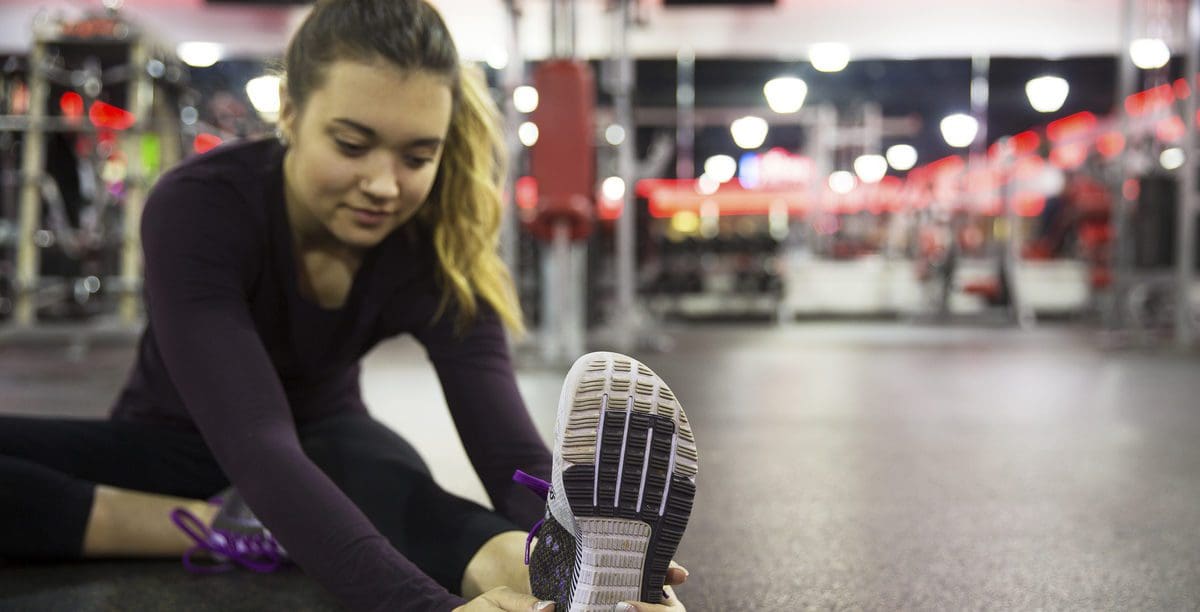Last summer I got a gym membership, and it was one of the best decisions I’ve ever made. I knew it was good because exercise is good; now I’ve never been stronger or felt better. But in another, more subtle sense, getting a gym membership was dangerous—
It exposed obsessive tendencies in my heart to idolize exercise.
Like food, family, or sex, exercise is a physical, embodied gift from God that should be used to worship him. But just like food, family, and sex, it can be worshiped. What’s the difference? And how do we embrace this gift without elevating it as a god?
Exercise as Worship
Exercise is fundamentally and foundationally good. God created humans to move—to walk, work, run, dance, clap, stomp, skip, jump. And for most of history, exercise and movement were baked into the fabric of human society. Standing desks and 7-minute workouts would have been inconceivable to agrarian or pre-automotive societies.
No one had to be told to exercise. It was simply ingrained.
Of course, our way of life in a technology-advanced, desk-dominated culture is different. We have more freedom to be lazy and undisciplined. For most of us, exercise takes work—hard work. Because we’re focused on its difficulty and lack of fun, we’re often not intentional about worshiping through exercise. But this is missing a critical opportunity for the child of God. If our lives are meant to be marked and motivated by worship, exercise can be an act of joyful surrender and praise to God.
Exercise with Stewardship and Thanksgiving
The central way we worship through exercise is by good stewardship. We recognize that our body is not our own, and then we reflect praise to our Creator by stewarding this body well. The apostle Paul tells us this in 1 Corinthians 6:19-20: “Or do you not know that your body is a temple of the Holy Spirit within you, whom you have from God? You are not your own, for you were bought with a price. So glorify God in your body.”
We also worship through exercise by receiving it with thankfulness (1 Timothy 4:4). Many of us take for granted that we can walk 30 minutes or run down the street. As a child, I had severe asthma, which kept me from running or intense exercise. (I still remember having an asthma attack during a school sports day.) By the grace of God, that asthma has almost disappeared, and I’m able to run and exercise more strenuously. That is a blessing. Yet I can often forget this and consider exercise a curse when it’s a marvelous gift.
Five Ways Exercise Can Become an Idol
Like so many good gifts, exercise can reveal ugly, unfaithful tendencies in our hearts that lead to idolatry. Instead of exercising as worship, we begin to worship exercise. Exercise can morph into an altar of false devotion to achieve a personal sense of self-fulfillment. We think that if we sacrifice for and serve it consistently, we’ll get what we want.
[Tweet “Instead of exercising as worship, we begin to worship exercise.”]
But the Bible repeatedly warns Christians of the perils of seeking fulfillment and delight in any good gift instead of its Giver. The Bible tells us to flee from idolatry (1 Corinthians 10:14) and guard ourselves against it (1 John 5:21). But first we have to understand how and when exercise becomes idolatrous.
1. When exercise is about physical perfection
The contemporary fitness industry has created a system where exercise is motivated by body-shame and self-loathing. Retouched magazine covers, models, and movies all subversively convince us that the goal of exercise is physical perfection, not health. If it doesn’t matter to us if we’re getting stronger and feeling better; if we’re relentlessly dissatisfied with our stomach or arms; if we hate our bodies, and we’re exercising only to achieve cultural standards of beauty, exercise has become an idol.
2. When exercise is about comparison
Body-shame is frequently fueled by comparing ourselves to others (often the beautiful people we see on screens, but also people we meet regularly). We envy them. So we might force ourselves to exercise just to look like them. Sure, being motivated by someone else’s health and fitness accomplishments isn’t bad, but when comparison itself is our motivation, we’ve entered into idolatry.
3. When exercise is about control
Like food or sex, exercise is easy to weaponize and wield over us. Most of us love control, yet realistically feel the painful lack of control we have over the majority of our lives. Exercise is an area we can over-invest in and abuse to feel powerful and trust in our strength. All of us crave sovereignty, and if we exercise to achieve that, we’re seeking to play God over our health: that’s idolatry.
4. When exercise is about punishment
Exercise can also become idolatrous when we use it as punishment instead of self-discipline. Pushing our bodies, denying them, stretching them even when they don’t feel like it can be good. But doing that out of self-hatred and despair is unhealthy and ungodly. If you despise your body, you’re still thinking too much of it and thus, in a twisted way, worshiping it.
5. When exercise is slavery
Ultimately, when you are enslaved to exercise, you are worshiping it. If you feel compelled to exercise every day without rest; if you exercise at the expense of relationships with your family or friends; if you invest outrageous amounts of money in exercise; if exercise is constantly on your mind; if you feel self-righteous because you exercise; if exercise is your life, it’s idolatry.
Jesus Died for Idolaters
I am guilty of idolizing exercise. And I know that idolaters are worthy of the severest punishment: death (Revelation 21:8). But there was One who willingly, lovingly laid down his life for idolaters (1 Corinthians 6:9-11). The One against whom idolatry is an affront died for his idolatrous enemies (Romans 5:10). Jesus Christ, the only human who was perfectly faithful and never idolized, gave his life so that any idolater who repents and trusts in him will receive forgiveness and eternal life.
So when I go the gym this week, I’m going to preach this gospel to myself:
- Instead of being driven by my physical imperfections, I’m going to be thankful for my body.
- Instead of comparing myself to the women around me, I’m going to be thankful for the ability to exercise my body.
- Instead of wielding exercising as a weapon to gain control over my life, I’m going to be thankful for God’s sovereignty and loving care over my circumstances.
- Instead of using exercise to punish my body in shame, I’m going to be thankful for my eternal identity as a child of God.
- Instead of giving into the slavery of idolizing exercise, I’m going to be thankful for the freedom I have in Christ.
And I’m going to worship my Savior and Rescuer through it as a gift.







